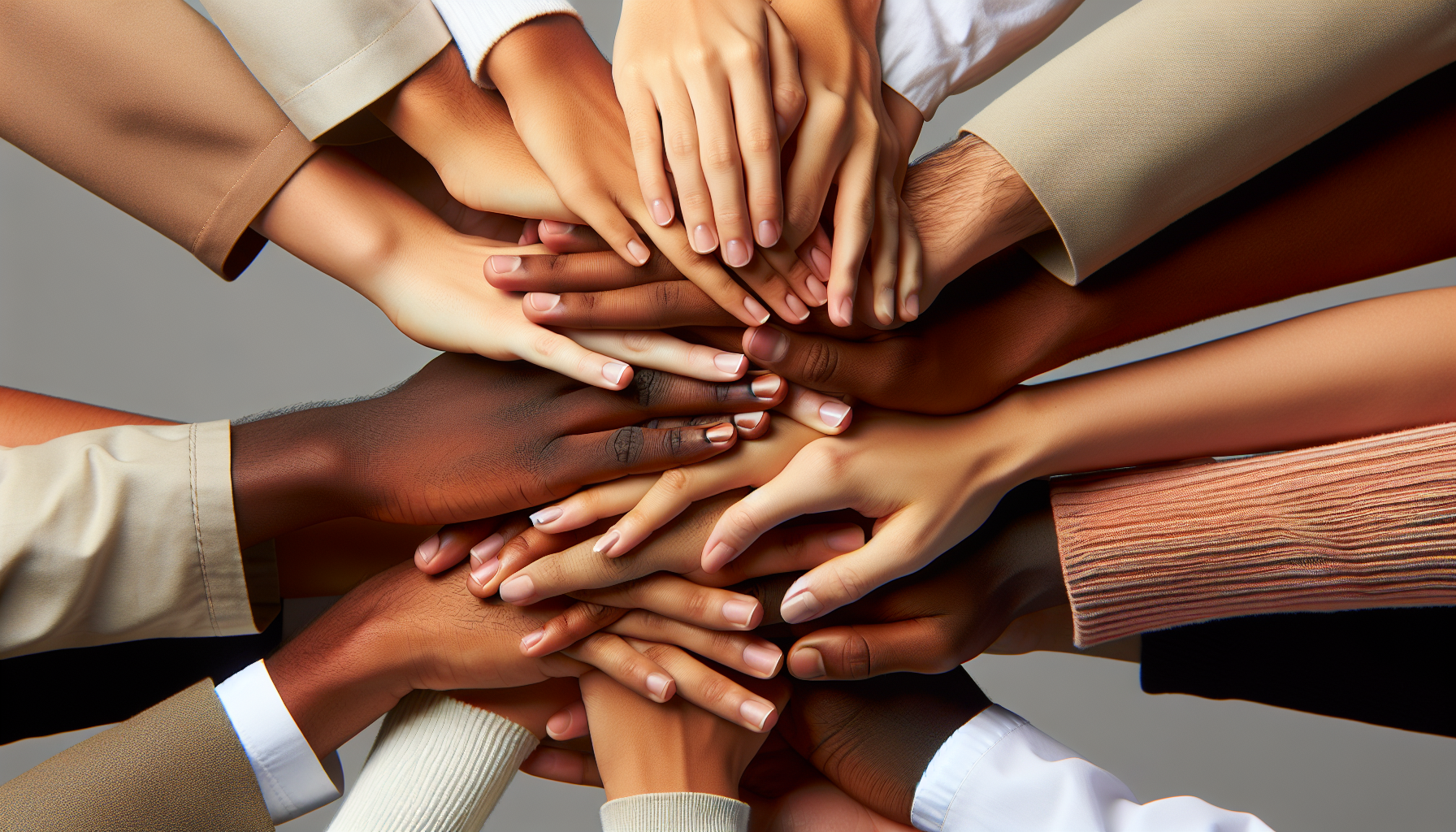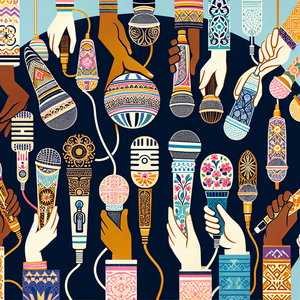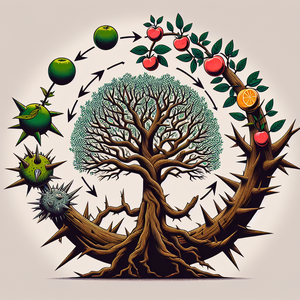The Role of Diversity and Inclusion in Shaping Workday Careers

Diversity encompasses a wide range of human experiences, including but not limited to race, ethnicity, gender, sexual orientation, age, and disability. Inclusion, on the other hand, refers to the practices that ensure individuals from diverse backgrounds feel valued, respected, and integrated within the organization. Research shows that diverse teams are more innovative and perform better, as they bring varied perspectives and ideas to the table. According to a McKinsey report, companies with greater gender and ethnic diversity are 15% and 35% more likely to outperform their peers, respectively. For companies like Workday, investing in diversity and inclusion is not just a moral imperative; it is also a strategic advantage.
Workday's Commitment to Diversity and Inclusion
Workday has established several initiatives aimed at promoting diversity and fostering an inclusive workplace culture. One such initiative is their Employee Resource Groups (ERGs), which are voluntary, employee-led groups that aim to create a sense of community and belonging. ERGs at Workday focus on various aspects of diversity, including gender, race, LGBTQ+ identity, and more. These groups provide a platform for employees to connect, share experiences, and support one another. Moreover, Workday’s commitment to recruitment practices that prioritize diverse candidates is evident in their hiring policies. The company actively seeks to eliminate biases in the recruitment process through training and awareness programs for hiring managers. This approach ensures that candidates from underrepresented backgrounds have equal opportunities to succeed. For instance, Workday has implemented blind resume reviews and structured interviews to mitigate unconscious biases, creating a more equitable hiring process. Supporting Examples - ERGs: Workday’s Women in Technology ERG has been instrumental in encouraging women to pursue careers in tech, providing mentorship and networking opportunities that empower members. - Diverse Hiring Initiatives: By partnering with organizations that focus on career development for underrepresented groups, Workday has diversified its talent pool and enriched its workplace culture.
Impact on Career Development
The emphasis on diversity and inclusion at Workday has profound implications for career development. Employees from diverse backgrounds often report feeling more empowered to pursue advancement opportunities within the company. By creating an environment where diverse voices are heard and valued, Workday promotes a culture of mentorship and sponsorship that is crucial for career growth. One employee, Sarah, a member of Workday’s Women in Technology ERG, attributes her career advancement to the support she received from her peers. “Being part of this group has not only helped me connect with mentors but also given me the confidence to take on leadership roles,” she explains. This sentiment is echoed by numerous employees who feel that their diverse perspectives have enriched their teams and contributed to their professional growth. Supporting Examples - Mentorship Programs: Workday's mentorship programs pair employees from various backgrounds with leaders in the company, fostering relationships that can lead to career advancement. - Leadership Representation: The visible presence of diverse leaders at Workday reinforces the message that hard work and innovation can lead to success, inspiring employees to strive for similar achievements.
Interviews with Employees from Varied Backgrounds
To further illustrate the impact of diversity and inclusion at Workday, we spoke with several employees from different backgrounds: - James, a Black software engineer, shared how the company’s focus on diversity has created a more equitable environment. “I feel like my experiences and viewpoints are valued here. It motivates me to contribute more to the team and strive for excellence in my work.” - Lisa, a Latina project manager, emphasized the importance of representation: “Seeing people who look like me in leadership roles inspires me to aim higher. Workday is committed to ensuring that all employees have a voice, and that has made a significant difference in my career path.” These personal stories highlight the tangible benefits of an inclusive workplace culture, as employees are more likely to thrive and contribute positively when they feel supported.
In conclusion, Workday’s commitment to diversity and inclusion is reshaping the landscape of careers within the organization. By fostering an inclusive culture that values diverse perspectives and experiences, Workday not only enhances employee satisfaction but also drives innovation and collaboration. As the company continues to implement initiatives that promote equity and representation, it serves as a model for others in the industry. The journey towards a more inclusive workplace is ongoing, but Workday is leading the way by demonstrating that diversity is not just a checkbox—it is a crucial element of organizational success. By investing in these principles, Workday is not only shaping careers but also building a more dynamic and resilient workforce that is well-prepared to meet the challenges of the future.
Diversity and Inclusion Manager
Workday, Salesforce, Google
Core Responsibilities
Develop and implement strategic diversity and inclusion initiatives that foster an inclusive workplace culture.
Analyze workforce data to assess diversity metrics and identify areas for improvement.
Lead training programs for employees and management to enhance understanding of diversity issues.
Required Skills
Strong knowledge of diversity and inclusion best practices and legal requirements.
Excellent communication and interpersonal skills to engage with diverse groups.
Experience in data analysis and reporting to track the effectiveness of initiatives.
Employee Resource Group (ERG) Coordinator
Workday, Microsoft, IBM
Core Responsibilities
Facilitate the establishment and ongoing support of ERGs to promote community and belonging among employees of diverse backgrounds.
Organize events, workshops, and networking opportunities to engage members and promote awareness.
Collaborate with HR to ensure ERGs align with company diversity goals and initiatives.
Required Skills
Strong organizational and project management skills.
Passion for diversity and inclusion with experience in community building.
Ability to communicate effectively with various employee groups and stakeholders.
Talent Acquisition Specialist (Diversity Focus)
Workday, LinkedIn, Facebook
Core Responsibilities
Implement diversity-focused recruitment strategies to attract a diverse candidate pool.
Conduct bias awareness training for hiring managers to promote equitable hiring practices.
Build relationships with organizations that support underrepresented talent.
Required Skills
Proven experience in talent acquisition, particularly in diversity recruitment.
Strong networking and relationship-building skills.
Familiarity with applicant tracking systems and recruitment metrics.
Corporate Social Responsibility (CSR) Manager
Workday, Unilever, Patagonia
Core Responsibilities
Develop and manage CSR programs that promote social equity and community engagement.
Collaborate with internal and external stakeholders to align CSR initiatives with diversity goals.
Measure and report on the impact of CSR programs on community and employee engagement.
Required Skills
Strong project management and strategic planning abilities.
Excellent communication skills for stakeholder engagement and reporting.
Experience in social impact measurement and evaluation.
Learning and Development Specialist (Diversity and Inclusion)
Workday, Deloitte, Accenture
Core Responsibilities
Design and deliver training programs focused on diversity, equity, and inclusion for employees at all levels.
Assess training needs and develop materials that resonate with a diverse workforce.
Measure the effectiveness of learning initiatives and adjust programs based on feedback and outcomes.
Required Skills
Expertise in instructional design and adult learning principles.
Strong facilitation skills and ability to engage diverse audiences.
Familiarity with e-learning platforms and training evaluation methods.


